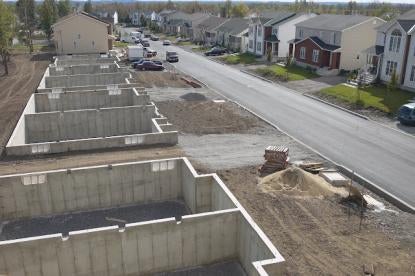Appeals of major development projects of 25 or more dwelling units or 25,000 square feet or more of gross floor area cannot go to the Massachusetts Housing Court, as jurisdiction for these projects is exclusively with the Superior Court and Permit Session of the Land Court, according to a recent decision by the highest Massachusetts court.
In Skawski v. Greenfield Inv'rs Prop. Dev. LLC, No. SJC-11926 (Feb. 11, 2016), Greenfield Investors Property Development LLC proposed a project of approximately 135,000 square feet of retail commercial space for which it received a special permit from the Greenfield Planning Board. When abutters appealed the decision to the Housing Court, Greenfield requested a transfer of the appeal to the Permit Session of the Land Court pursuant to M.G.L. c. 185, § 3A, which was opposed by the abutters and denied by the Chief Justice of the Trial Court without explanation.
Greenfield renewed its effort to move the case out of the Housing Court after the Appeal Court’s decision in Buccaneer Dev., Inc. v. Zoning Bd. of Appeals of Lenox, 83 Mass.App.Ct. 40, 43–44 (2012). In Buccaneer, the Appeals Court held that M.G.L. c. 185, § 3A, the statute creating the Permit Session of the Land Court, deprived the Housing Court of subject matter jurisdiction to hear major development permit appeals. However, Greenfield’s motion to dismiss for lack of subject matter jurisdiction was denied by the Housing Court, which distinguished the holding in Buccaneer, stating that “the Appeals Court ruled effectively that the developer’s choice of forum trumped the defendants’ right under G.L. c. 185C, § 20[,] to transfer the case to the Housing Court” and that where the developer’s request to transfer the case to the Permit Session has been denied, allowance of the defendants’ motion to dismiss “would deprive the plaintiffs entirely of their statutory right to judicial review of the [p]lanning [b]oard's decision.”
The ruling was reported to the Appeals Court, which reversed the judge’s order, finding that M.G.L. c .185, § 3A, did in fact deprive the Housing Court of subject matter jurisdiction over major development permit appeals. Skawski v. Greenfield Investors Prop. Dev., LLC, 87 Mass.App.Ct. 903, 905–906 (2015). The Massachusetts Supreme Judicial Court accepted the application for further appellate review.
The Court applied standard techniques of statutory interpretation to arrive at its decision that the law creating the Permit Session had deprived the Housing Court of jurisdiction. Noting that the statute did not explicitly reject the Housing Court’s jurisdiction over permit appeals, which was established earlier in M.G.L. c. 40A, § 17, the Court looked to see if the “clear implication” of Section 3A was to divest the Housing Court of jurisdiction over these appeals. The Court looked to the text of the Act as well as its legislative history and determined that “it is plain that the Legislature sought to reduce the costs and delays of the permitting process required to conduct business and develop property.” The Court rejected the abutters’ argument that the purpose of the statute was to merely create a new alternative venue in the Permit Session of the Land Court rather than to supplant the jurisdiction of any other courts in hearing appeals of this sort. “But, if its purpose were simply to create a new permit session in the Land Court, there would be no need to mention the concurrent original jurisdiction of the Superior Court. By specifying that the Superior Court Department shared concurrent jurisdiction with the permit session of the Land Court, and not also specifying any other court department as having concurrent jurisdiction, the Legislature impliedly reflected its intent that these major development permit appeals be adjudicated only by these two courts.”
Dealing a blow to the developer who spent time, effort, and money pursuing this tactic, the Court refused to dismiss the case outright, instead transferring the case from the Housing Court to the Permit Session. “Dismissal would be especially unfair here, where the abutters timely filed their appeal in a court that appeared at the time to have jurisdiction under G.L. c. 40A, § 17; where the defendants did not challenge the Housing Court's jurisdiction until the Appeals Court issued its opinion in the Buccaneer case in 2012, eighteen months after the appeal was filed and well after the abutters might have filed a timely new appeal in the Land Court or Superior Court; and where our conclusion regarding the absence of jurisdiction in the Housing Court rests principally on the doctrine of implied repeal rather than the express language of § 3A.”
The Skawski decision provides clarity that the Housing Court is not a permissible venue any longer for appeals of permits that fall in the jurisdiction of the Permit Session. However, what remains unaddressed is the failure of the Chief Justice of the Trial Court to timely review and transfer such cases to the Permit Session at the request of developers. While this will no longer be an issue from the Housing Court, developers preferring a single judge of the Land Court to the rotation of the Superior Court and the land use expertise of the judges in the Land Court to the uncertainty of the Superior Court experience still remain frustrated by the delay, denial, and lack of explanations for decisions on transfer requests




 i
i


